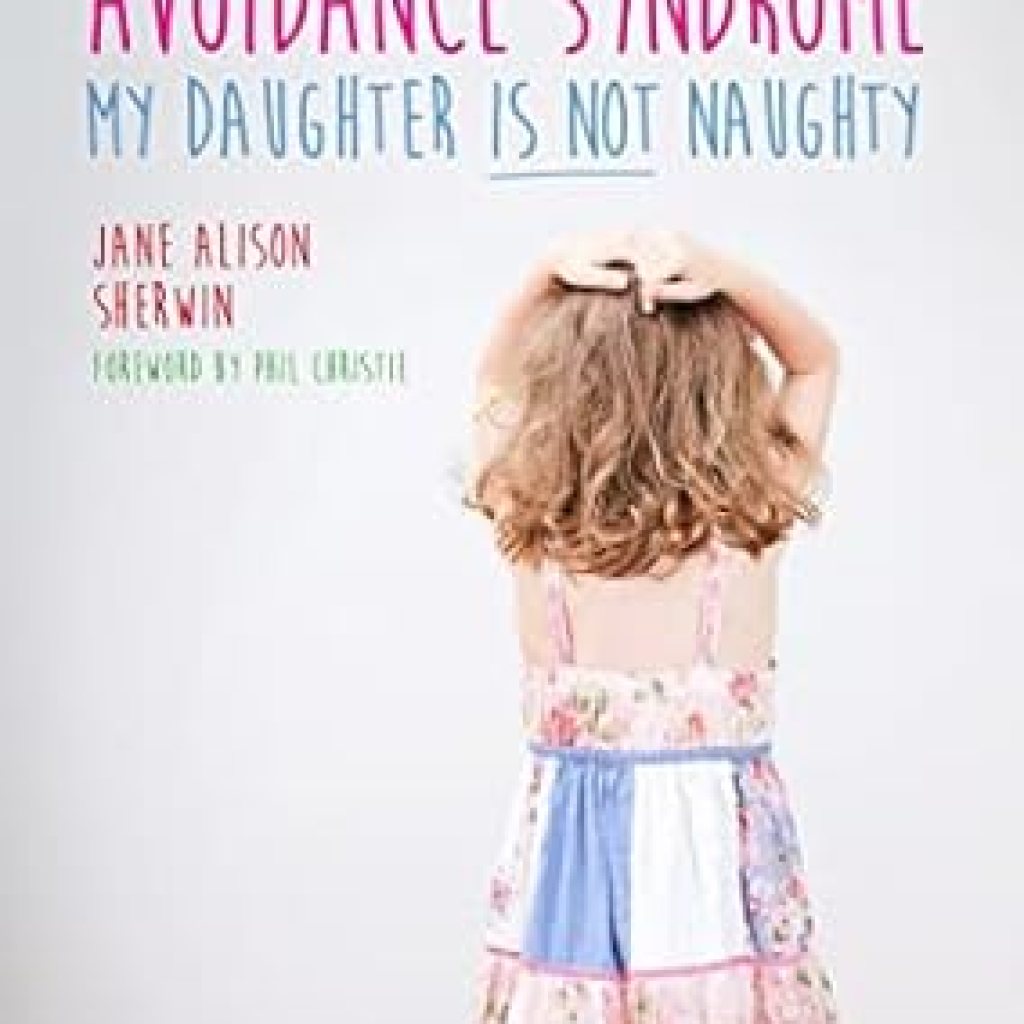Discover the uplifting journey of a mother navigating the complexities of raising a child with Pathological Demand Avoidance (PDA) in Jane Alison Sherwin’s insightful book, *Pathological Demand Avoidance Syndrome – My Daughter is Not Naughty*. This heartfelt account chronicles her daughter Mollie’s experiences from diagnosis at age seven to her budding adolescence at ten, shedding light on the often misunderstood traits of PDA. Jane’s honest reflections reveal the ‘why’ behind her daughter’s behaviors, offering a deeper understanding of the need for control, meltdowns, and sensory challenges.
Filled with practical strategies and essential advice, this book serves as a beacon of hope for parents and families grappling with PDA. Jane’s warm, conversational tone makes it feel like a chat with a friend, while the included interview with Mollie provides a unique perspective that enriches the narrative. Whether you’re a parent, educator, or professional, this invaluable resource will empower you to foster understanding and support for children with PDA.
Pathological Demand Avoidance Syndrome – My Daughter is Not Naughty
Why This Book Stands Out?
- Personal Journey: Jane Alison Sherwin shares her heartfelt and authentic experiences as she navigates the complexities of raising her daughter, Mollie, diagnosed with Pathological Demand Avoidance (PDA).
- In-Depth Understanding: The book delves into the ‘why’ behind PDA traits, offering insights into the need for control, meltdowns, and sensory challenges, helping readers grasp the unique perspective of children with PDA.
- Practical Strategies: Jane provides actionable advice and effective strategies that have proven beneficial for Mollie, equipping parents and caregivers with tools to better support their children.
- Expert Guidance: With tips on obtaining a diagnosis and raising awareness, the book serves as a valuable resource for parents and professionals alike, including teachers and mental health workers.
- Real-Life Interview: An engaging interview with Mollie adds a personal touch, giving readers a direct glimpse into the thoughts and feelings of a child living with PDA.
- Supportive Community: This book fosters a sense of understanding and belonging, making it a beacon of hope for families facing similar challenges, emphasizing that they are not alone.
Personal Experience
As I delved into Jane Alison Sherwin’s poignant narrative in Pathological Demand Avoidance Syndrome – My Daughter is Not Naughty, I found myself deeply moved by the honesty and vulnerability woven throughout her account. Jane’s journey with her daughter Mollie not only illuminated the complexities of Pathological Demand Avoidance (PDA), but it also resonated with my own experiences as a parent navigating the challenging waters of unique behavioral needs.
There were moments when I felt like Jane was speaking directly to me, sharing insights that mirrored my own struggles and triumphs. The way she describes the emotional rollercoaster of meltdowns and the overwhelming need for control struck a familiar chord. It’s these shared experiences that foster a sense of community, making you realize that you’re not alone in this journey.
Here are some key reflections that I found particularly relatable:
- Understanding the “Why”: Jane’s explanations of PDA traits helped me to better understand my own child’s behavior. It’s comforting to know that these actions are not just defiance but rather a response to their unique perception of the world.
- The Importance of Diagnosis: The journey to diagnosis can often feel daunting and isolating. Jane’s story serves as a reminder of the value of persistence and advocacy for our children.
- Practical Strategies: The strategies Jane shares for managing everyday challenges with Mollie are not just theoretical; they are actionable tips that I found myself eager to implement in my own home.
- Connection with Others: The interview with Mollie adds a beautiful layer of authenticity, reminding us that our children are not defined by their challenges but are vibrant individuals with their own stories to tell.
- Community Support: Jane’s narrative emphasizes the importance of sharing experiences with other parents and professionals. It’s a call to action to raise awareness and foster understanding of PDA.
Reading this book felt like having a heartfelt conversation with a friend who truly understands the intricacies of parenting a child with PDA. It’s a resource that not only offers insights but also wraps you in a warm embrace of empathy and support. I found myself reflecting on my own parenting journey, filled with moments of joy, frustration, and ultimately, growth.
Who Should Read This Book?
If you’re a parent, caregiver, or educator involved in the life of a child with Pathological Demand Avoidance (PDA), then this book is a must-read for you. Jane Alison Sherwin’s heartfelt and insightful account is tailored specifically to those who are navigating the complexities of PDA and are seeking understanding, strategies, and support.
Here’s why this book is perfect for you:
- Parents and Caregivers: If you have a child who has been diagnosed with PDA or shows traits of it, Jane’s experiences can resonate deeply with you. Her candid discussions about the day-to-day challenges and triumphs provide reassurance that you are not alone in this journey.
- Educators and Teaching Assistants: For those working in schools, this book offers valuable insights into the behaviors and needs of children with PDA. Understanding these traits can help you create a more supportive and effective learning environment.
- Special Educational Needs (SEN) Coordinators: With its focus on the unique challenges faced by children with PDA, this book equips SEN coordinators with the knowledge needed to advocate for appropriate resources and strategies within educational settings.
- Psychologists and Outreach Workers: If you’re a professional working closely with families affected by PDA, this book provides a real-world perspective that can enhance your understanding and approach to support.
- Families and Friends: If you want to better understand the experiences of a loved one with PDA, Jane’s narrative offers a compassionate lens through which to view their world and behaviors.
This book is not just about diagnosis; it’s about understanding, empathy, and finding practical strategies that can make a real difference in the lives of children with PDA. By sharing her story and insights, Jane Alison Sherwin provides a beacon of hope and clarity, turning what can feel like an overwhelming journey into one filled with possibility and understanding.
Pathological Demand Avoidance Syndrome – My Daughter is Not Naughty
Key Takeaways
Jane Alison Sherwin’s book, “Pathological Demand Avoidance Syndrome – My Daughter is Not Naughty,” offers invaluable insights for anyone navigating the challenges of raising a child with PDA. Here are the key points that make this book a must-read:
- Understanding PDA: Gain a deep understanding of Pathological Demand Avoidance, including its traits and behaviors, helping you to see beyond the surface of your child’s actions.
- Insights from Personal Experience: Follow Jane’s journey with her daughter Mollie, from diagnosis to adolescence, providing relatable experiences for parents in similar situations.
- Strategies for Success: Discover effective strategies that have worked for Mollie, offering practical tools to support your child’s unique needs.
- Impact on Family Dynamics: Learn about the broader effects of PDA on family life, enabling a more supportive and understanding home environment.
- Advice on Diagnosis: Get essential information on navigating the diagnostic process for PDA, including how to advocate for your child.
- Professional Insights: Valuable commentary aimed at educators and professionals, enhancing their understanding and approach to working with children with PDA.
- Interview with Mollie: An exclusive interview that provides a child’s perspective on living with PDA, fostering empathy and understanding.
Final Thoughts
Jane Alison Sherwin’s Pathological Demand Avoidance Syndrome – My Daughter is Not Naughty is not just a book; it’s a heartfelt journey through the complexities of raising a child with Pathological Demand Avoidance (PDA). With a candid narrative, Jane shares her experiences with her daughter Mollie, from the struggles of misdiagnosis to the enlightening moments following the correct diagnosis. This book offers invaluable insights into the mind of a child with PDA, illuminating the reasons behind behaviors that are often misunderstood.
The book is rich with:
- Authentic experiences that resonate with many parents facing similar challenges.
- Effective strategies for managing PDA traits, including meltdowns and obsessive behaviors.
- Essential advice for navigating the diagnosis process and advocating for awareness.
- A unique perspective through an interview with Mollie herself, adding depth and understanding.
This uplifting account is a beacon of hope and understanding for families dealing with PDA, as well as for professionals like teachers and social workers who influence these children’s lives. It’s more than just a guide; it’s a companion for those seeking to understand and support their loved ones better.
If you are a parent, educator, or anyone interested in understanding PDA, this book is a valuable addition to your collection. Don’t miss out on the opportunity to gain insight and practical advice that can make a difference in your life and the life of a child with PDA. Purchase your copy today!





